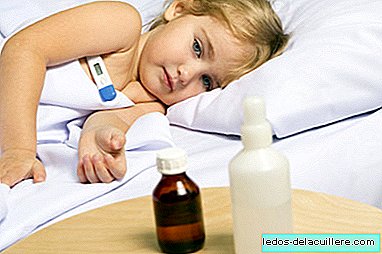
It occupies a prominent place in the news and in the conversations and is that in Spain influenza A is wreaking havoc. But be careful, because Antibiotics don't work for the flu (nor for colds), as up to 45% of Spaniards and 40% of Europeans mistakenly believe.
The bad thing is that this ignorance leads to misuse of antibiotics and this is causing greater resistance to this medicine. According to the World Health Organization, if only the really necessary antibiotics were taken, that is, to treat bacterial infections, the risk of misuse would be reduced.
In addition to increasing the risk of drug-resistant bacterial infections, excessive use of antibiotics can kill healthy bacteria that live in the body, which can cause nausea and diarrhea or vaginal candidiasis in women. In addition, the risk of an allergic reaction is increased.
For all this it is necessary to increase the information that comes to society about these drugs, in order to obtain a more prudent use. Antibiotics do not work to cure everything, that is, they are not useful in all cases and will no longer be useful if, in necessary cases, they are not used in the correct way.
According to WHO, antibiotic resistance is currently one of the biggest threats to global health. It is reaching alarming levels worldwide and compromises the ability to treat infectious diseases, putting people at risk. This is the WHO video that reminds us in a few minutes of the importance of these issues and is included in the global campaign "Antibiotics, handle them carefully".
Decalogue of the good use of antibiotics
We end up remembering the Decalogue on the good use of antibiotics of the Spanish Association of Primary Care Pediatrics:
Antibiotics have saved millions of lives. It is essential to use them properly so that they remain useful.
They are only effective for infections caused by bacteria. Most childhood infections are caused by viruses and therefore are not cured or relieved with antibiotics.
Fever is not treated with antibiotics. Their presence does not mean that they are necessary.
The law prohibits selling over-the-counter antibiotics. Only the doctor can prescribe them. They should not be taken without your supervision.
Antibiotics that have been left over from other treatments should not be used. These should be taken to the SIGRE point (collection points in pharmacies) for recycling.
Antibiotics should be taken in doses, guidelines and for as long as the doctor has recommended.
Antibiotics should not be discontinued even if the symptoms of the disease disappear except by medical indication.
Antibiotics are safe medications but in some cases they can have side effects or produce allergies. In these cases you should consult with the doctor.
Misused antibiotics are no longer effective because bacteria become resistant to their effects. This is a serious health problem.
Antibiotics must be used with certain precautions during pregnancy and lactation. These circumstances should be communicated to your doctor.












